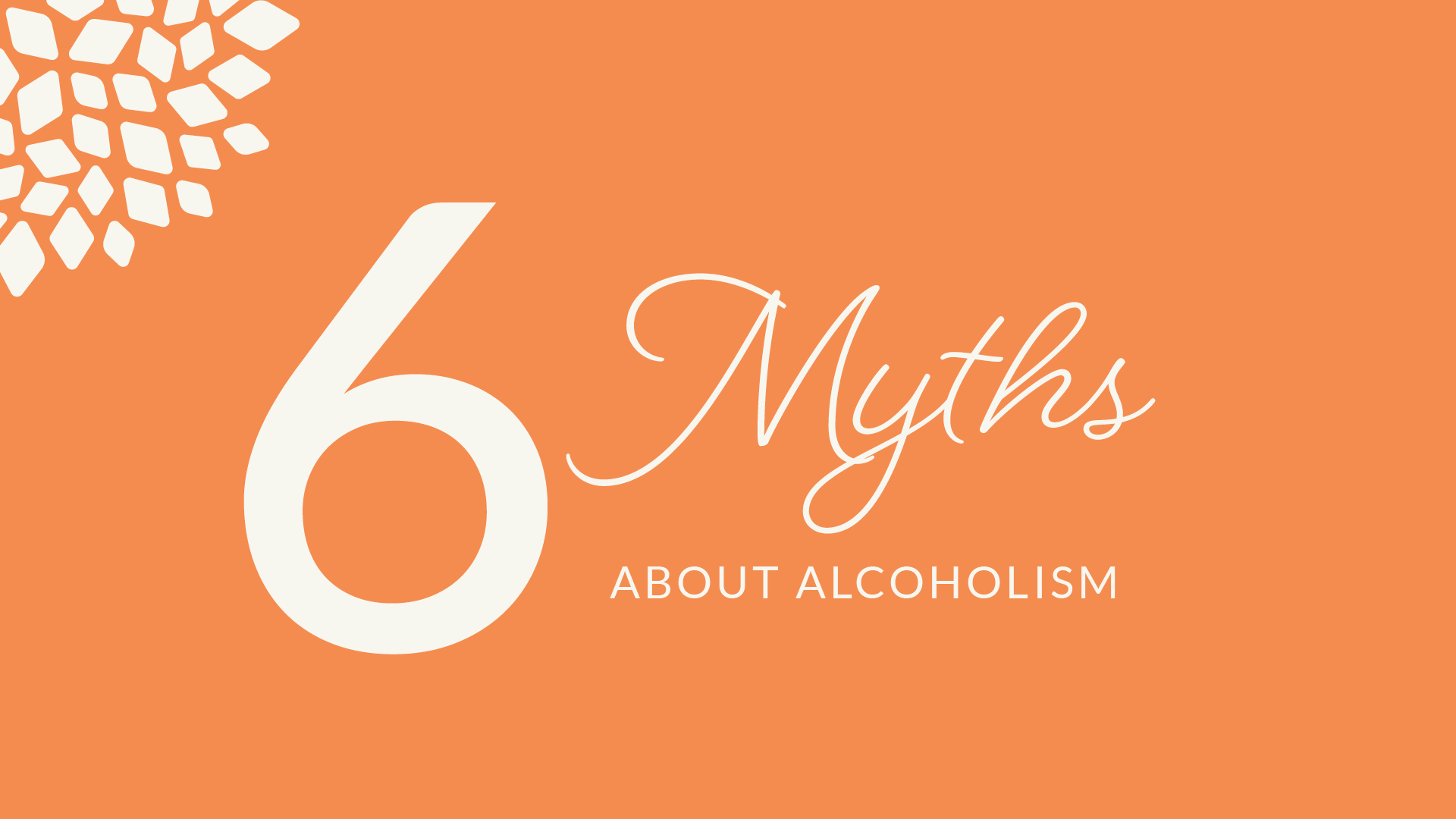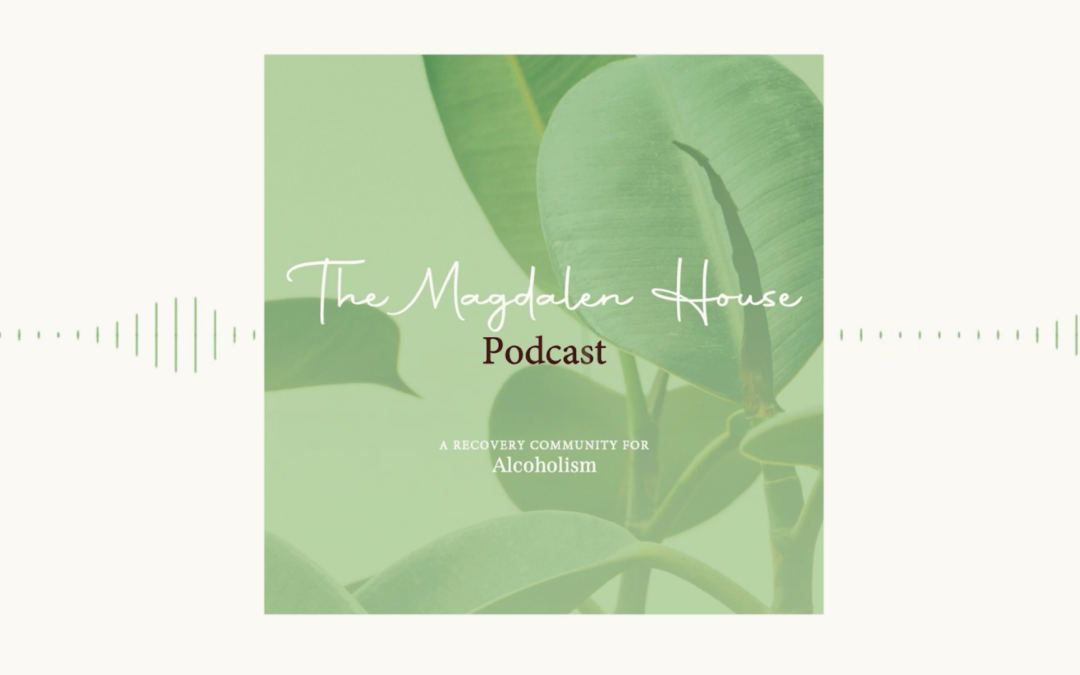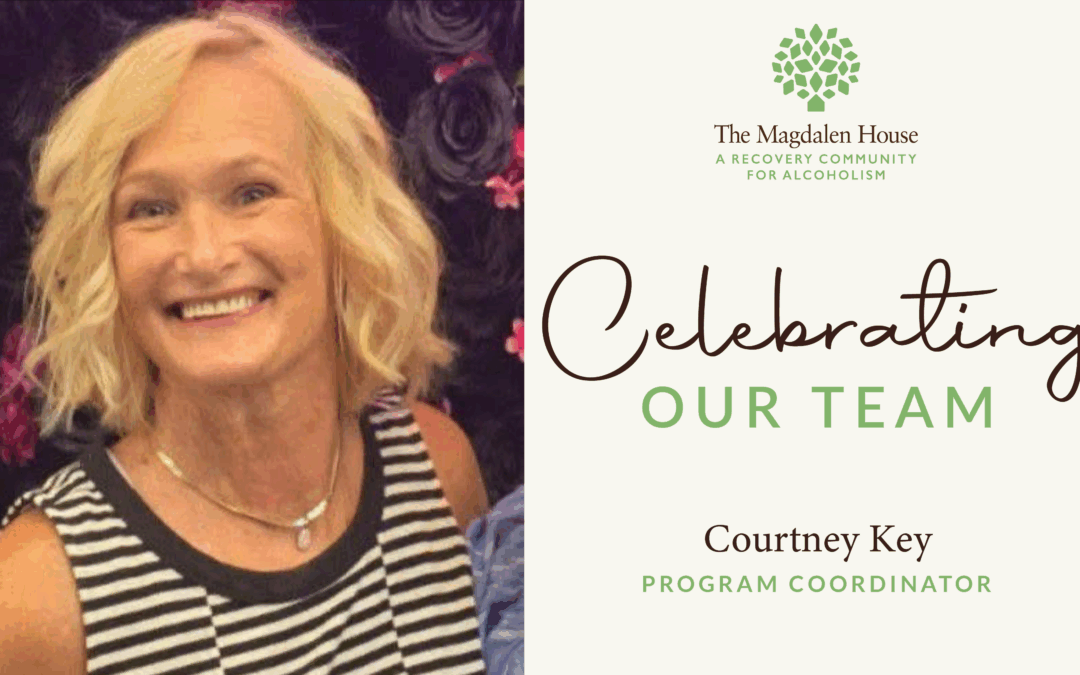By Lisa Kroencke, Executive Director
With April being Alcohol Awareness Month, I wanted to reflect on some things that I thought were true when I was desperately trying to get sober – mainly among these myths was that alcohol was my problem.
It was incredible how many suggestions I received from well-meaning friends and family (who are not in recovery), and I tried them all. And to my horror, I continued to drink. My alcohol consumption increased with every failed attempt to try the next “new thing” that never seemed to work.
Looking back, each new attempt was centered around alcohol, and to my complete surprise – recovery from alcoholism was never supposed to involve “giving up” alcohol because, now, the problem has been removed.
There is SO much misinformation out there. Every Google search seems to bring in another reason “why” I am an alcoholic accompanied with the latest and greatest get well now with some miraculous new remedy. Sheesh, it’s exhausting.
Let’s keep it simple.
Here are some of the myths around alcoholism that still prevail today, along with my experience.
Myth #1: If an alcoholic could just stop drinking, everything would be okay.
Yes, not drinking alcohol was the outcome I desired, but today I don’t drink because of a spiritual awakening, NOT because I choose not to drink. Me just choosing “not to drink” is hell on earth. The most miserable I have ever been is just not drinking without a suitable substitute.
Alcohol was NOT my problem; it was my solution.
Myth #2: Alcoholics should avoid all places with alcohol and people who drink.
The beauty of the program is the promise that we, as people in recovery, can go anywhere a “normal” person can go once we have fully recovered. This is a testament to one’s spiritual fitness or the freedom from any mental obsession to drink attained through working the program. No one should change their behavior because I am an alcoholic!
Myth #3: Alcoholics choose to drink alcohol; it is a behavior problem.
Alcoholism is a mental illness. If it were a behavior problem, many very strong-willed alcoholic people I know would have stopped drinking long ago.
Myth #4: Keeping a trigger list works for an alcoholic.
*Facepalm*
Unfortunately, life = stress. Whether it’s in work, school, or family life, stress is unavoidable. A huge part of recovery is learning how to handle difficult situations with dignity and grace. A byproduct of working a recovery program (aka getting connected to God) is the ability to handle stressful or uncomfortable situations. The idea that we will be able to avoid these is naive, and unfortunately, sets us up for failure. Our ability to walk through these experiences is a testament to God’s omnipotence.
Myth #5: Alcoholics have to hide their alcoholism.
Sobriety isn’t supposed to handicap us; it’s meant to bolster us. Real recovery grants us the ability to achieve our full potential and become better, more balanced people. And yes, you do have a choice of whether you reveal that you’re in recovery, but we should not hide.
In my experience, the honest approach works better than people imagine. Once you get over your fear of the occasional judgment, saying you’re in recovery can be one of the best conversation starters.
I have no shame that I’m in recovery. You’d be surprised how many questions I get asked once people hear I’m in recovery: So that means you don’t drink? What made you get help? I have a friend who’s addicted to alcohol, any advice?
We get to be powerful examples of how God works, and our primary purpose is to help others. We don’t know what about our story could be helpful to someone else if we refuse to share it.
Try it. Remember, we’re meant to be free.
Myth #6: Recovery from alcoholism is expensive
Here at The Magdalen House, we believe that recovery should be accessible to all women and men who want and need our services regardless of their resources. All of our programs are free and will remain free. The price to be paid is to join our community and help other women recover!
Our knowledge on this topic comes from many years of experience. We hope we can start changing the perception of what recovery really looks like.
For our readers struggling with alcoholism right now, there’s hope.
To get help overcoming your alcohol addiction, call our intake office at (214) 324-9261. We’d be more than happy to talk with you.





